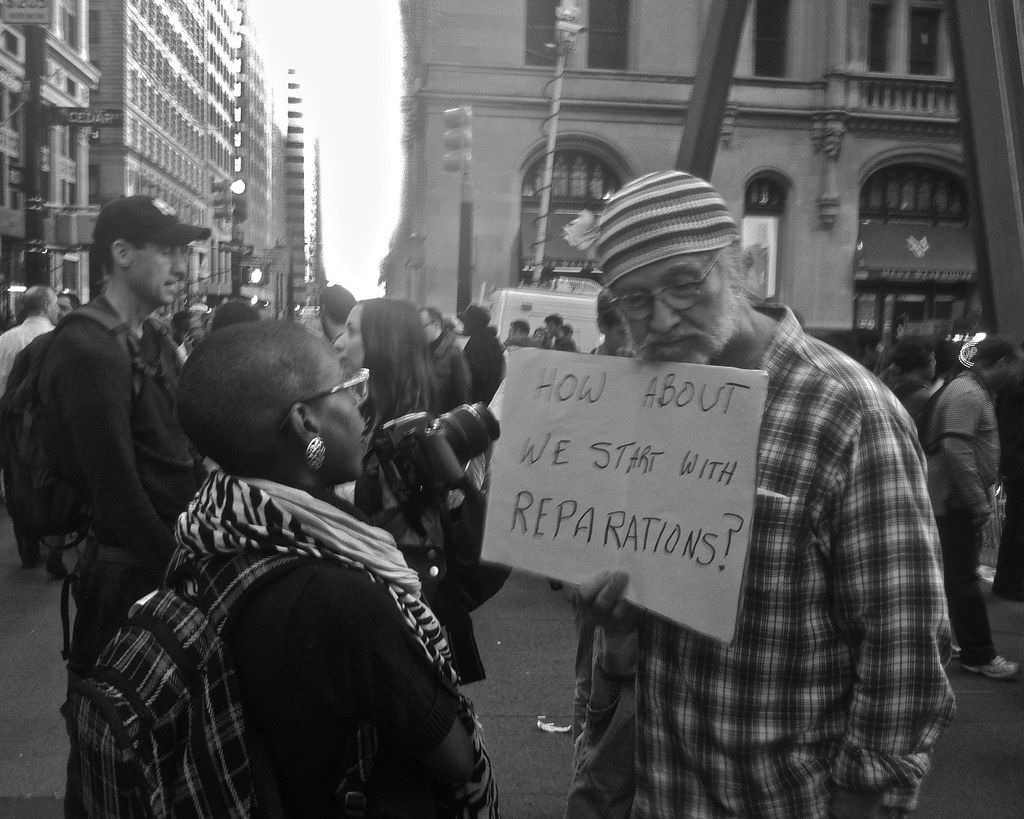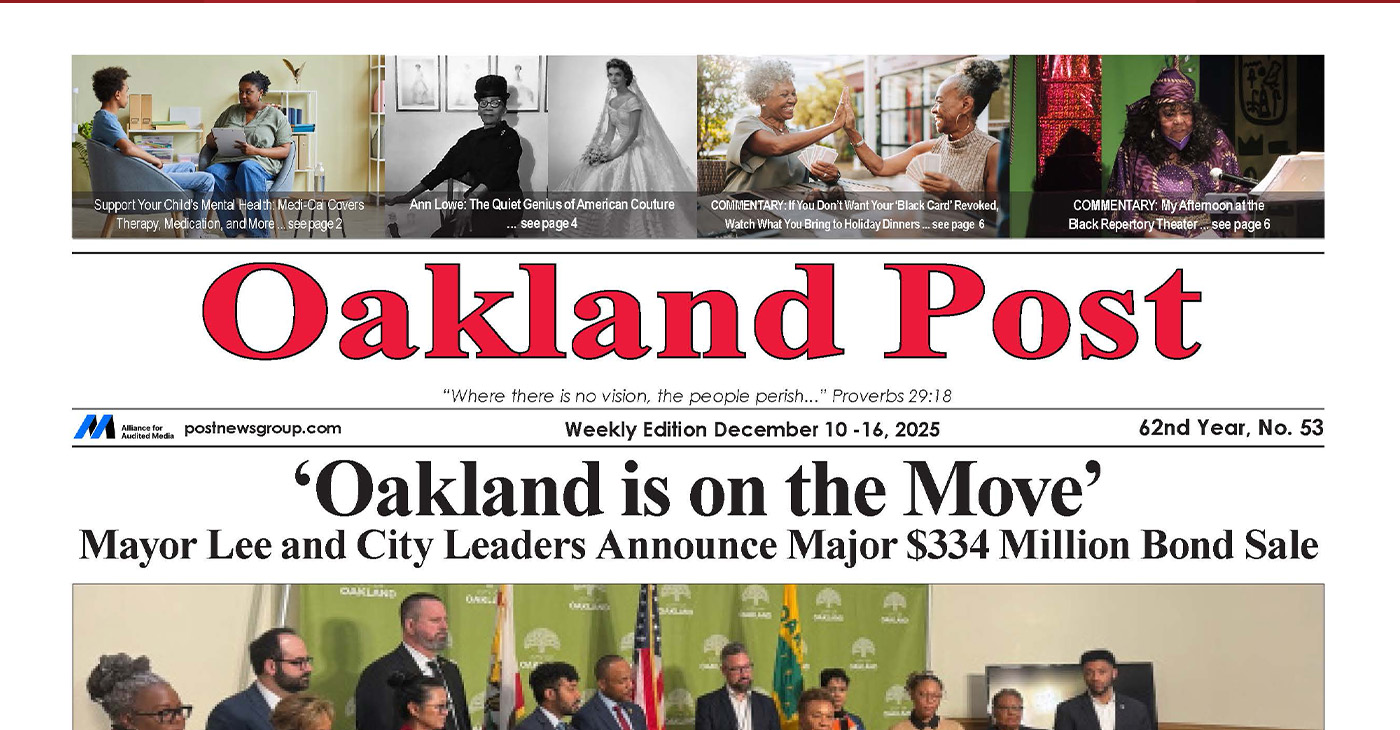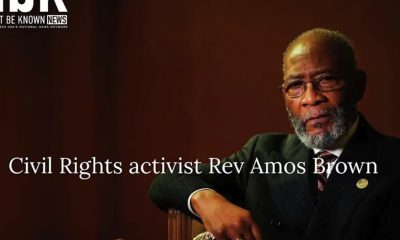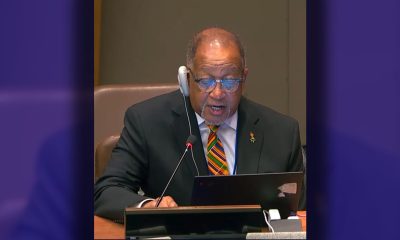Economics
Reparations For Unjust Enrichment

God on Wall Street

Rev. Curtis O. Robinson, Sr.
On November 20, 1866, General Oliver Otis Howard, along with 10 other people, played a key role in the founding of Howard University.
General Howard understood that former slaves would need opportunities that only a good education could afford them, if they were to succeed in the new America. But it really wasn’t a new America, as angry whites continued their evil assault upon blacks. When blacks tried to educate themselves in newly formed schools by abolitionists such as General Howard, fires erupted and burned them down. When blacks tried to seek sanctuary within churches for educational purposes, fires erupted and the churches burned down.
I read in Wikipedia, the online encyclopedia, where Howard said, “The opposition to Negro education made itself felt everywhere in a combination not to allow the freed men any room or building in which a school might be taught. In 1865, 1866, and 1867, mobs of the baser classes at intervals and in all parts of the South occasionally burned school buildings and churches used as schools, flogged teachers or drove them away, and in a number of instances murdered them.”
In addition to being the namesake of one of the tremendous institutions of higher learning in America, Howard was also instrumental in providing leadership for the Freedman’s Bureau. I read in History.com that, “The Freedmen’s Bureau, formally known as the Bureau of Refugees, Freedmen and Abandoned Lands, was established in 1865 by Congress to help millions of former Black slaves and poor whites in the South in the aftermath of the Civil War.” The Freedmen’s Bureau could be a major component in the passing of legislation that authorizes the U.S. government to make material and spiritual advancements towards making reparations a reality. According to Encyclopedia.com, “FORTY ACRES AND A MULE was a phrase echoed throughout the South in the aftermath of the Civil War, asserting the right of newly freed African Americans to redistributed lands—particularly those plantations confiscated by U.S. troops during the war—as compensation for unpaid labor during slavery.”
However, with more research, we may be able to decipher the code that could lead to liberty. For instance, “unjust enrichment,” is a barometer for proving the need for reparations. There are three elements that must be present; the defendant received a benefit; at the plaintiff’s expense; and, under circumstances that would make it unjust for the defendant to retain the benefit without commensurate compensation.” It’s called “Unjust Enrichment,” and it’s the law!
Activism
Oakland Post: Week of December 17 – 23, 2025
The printed Weekly Edition of the Oakland Post: Week of – December 17 – 23, 2025

To enlarge your view of this issue, use the slider, magnifying glass icon or full page icon in the lower right corner of the browser window.
Activism
Oakland Post: Week of December 10 – 16, 2025
The printed Weekly Edition of the Oakland Post: Week of – December 10 – 16, 2025

To enlarge your view of this issue, use the slider, magnifying glass icon or full page icon in the lower right corner of the browser window.
Activism
Oakland Post: Week of November 26 – December 2, 2025
The printed Weekly Edition of the Oakland Post: Week of November 26 – December 2, 2025

To enlarge your view of this issue, use the slider, magnifying glass icon or full page icon in the lower right corner of the browser window.
-

 #NNPA BlackPress3 weeks ago
#NNPA BlackPress3 weeks agoLIHEAP Funds Released After Weeks of Delay as States and the District Rush to Protect Households from the Cold
-

 Alameda County3 weeks ago
Alameda County3 weeks agoSeth Curry Makes Impressive Debut with the Golden State Warriors
-

 Activism4 weeks ago
Activism4 weeks agoOakland Post: Week of November 26 – December 2, 2025
-

 #NNPA BlackPress3 weeks ago
#NNPA BlackPress3 weeks agoSeven Steps to Help Your Child Build Meaningful Connections
-

 #NNPA BlackPress3 weeks ago
#NNPA BlackPress3 weeks agoSeven Steps to Help Your Child Build Meaningful Connections
-

 #NNPA BlackPress4 weeks ago
#NNPA BlackPress4 weeks agoTrinidad and Tobago – Prime Minister Confirms U.S. Marines Working on Tobago Radar System
-

 #NNPA BlackPress4 weeks ago
#NNPA BlackPress4 weeks agoThanksgiving Celebrated Across the Tri-State
-

 #NNPA BlackPress3 weeks ago
#NNPA BlackPress3 weeks agoTeens Reject Today’s News as Trump Intensifies His Assault on the Press






















































